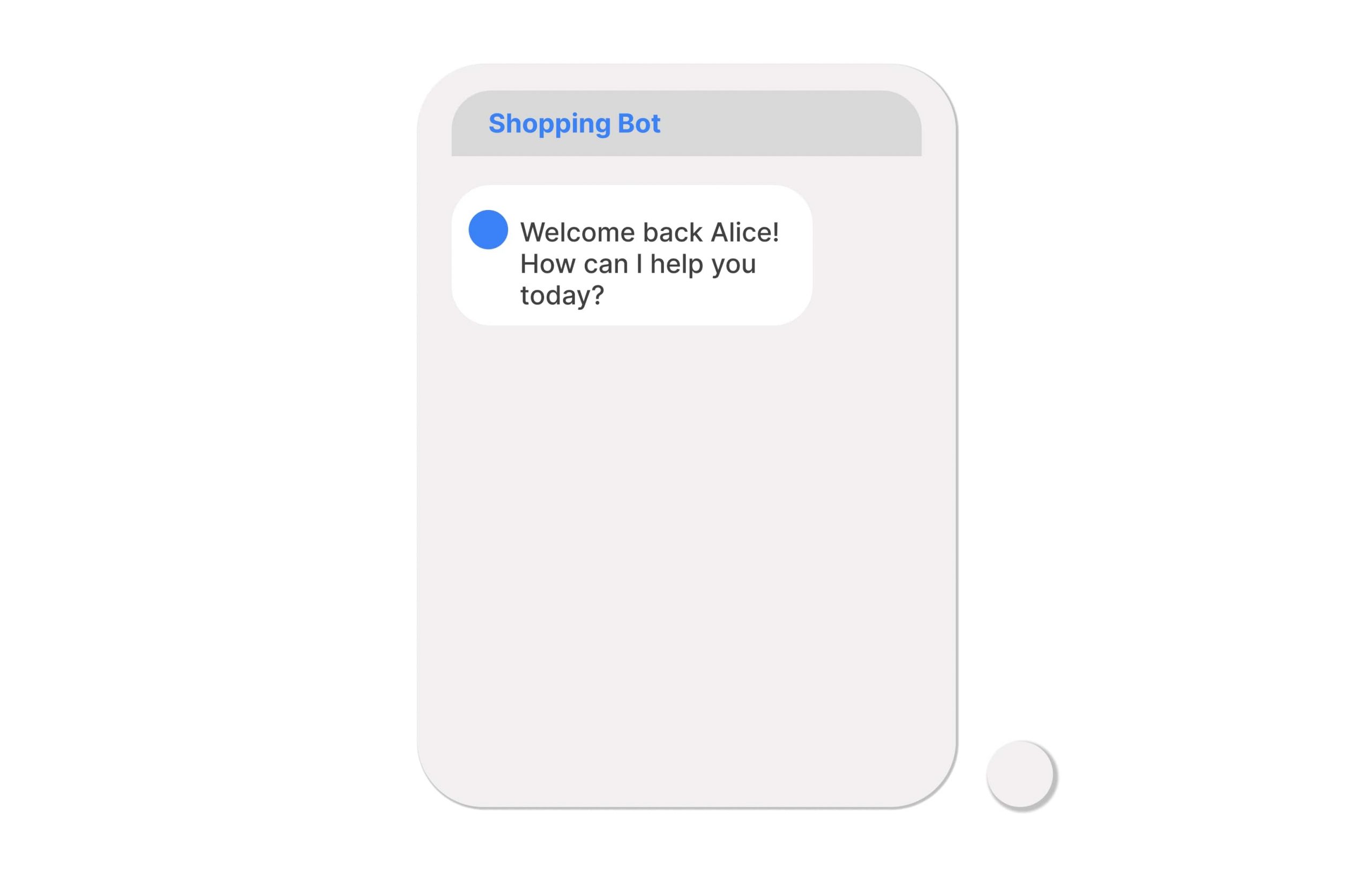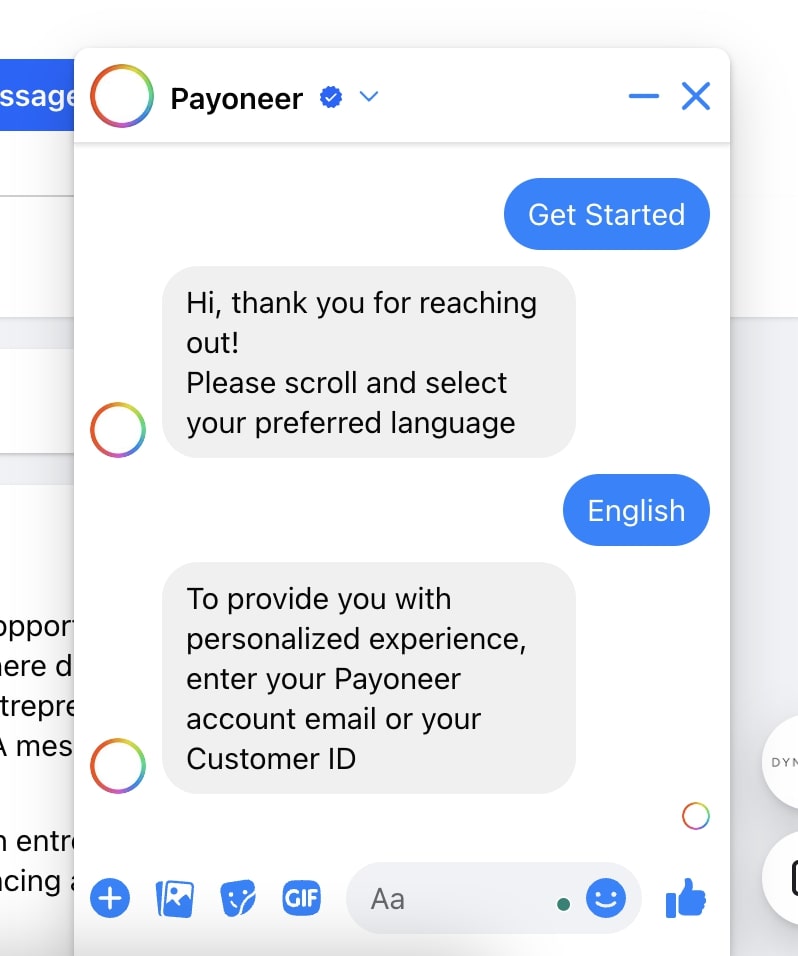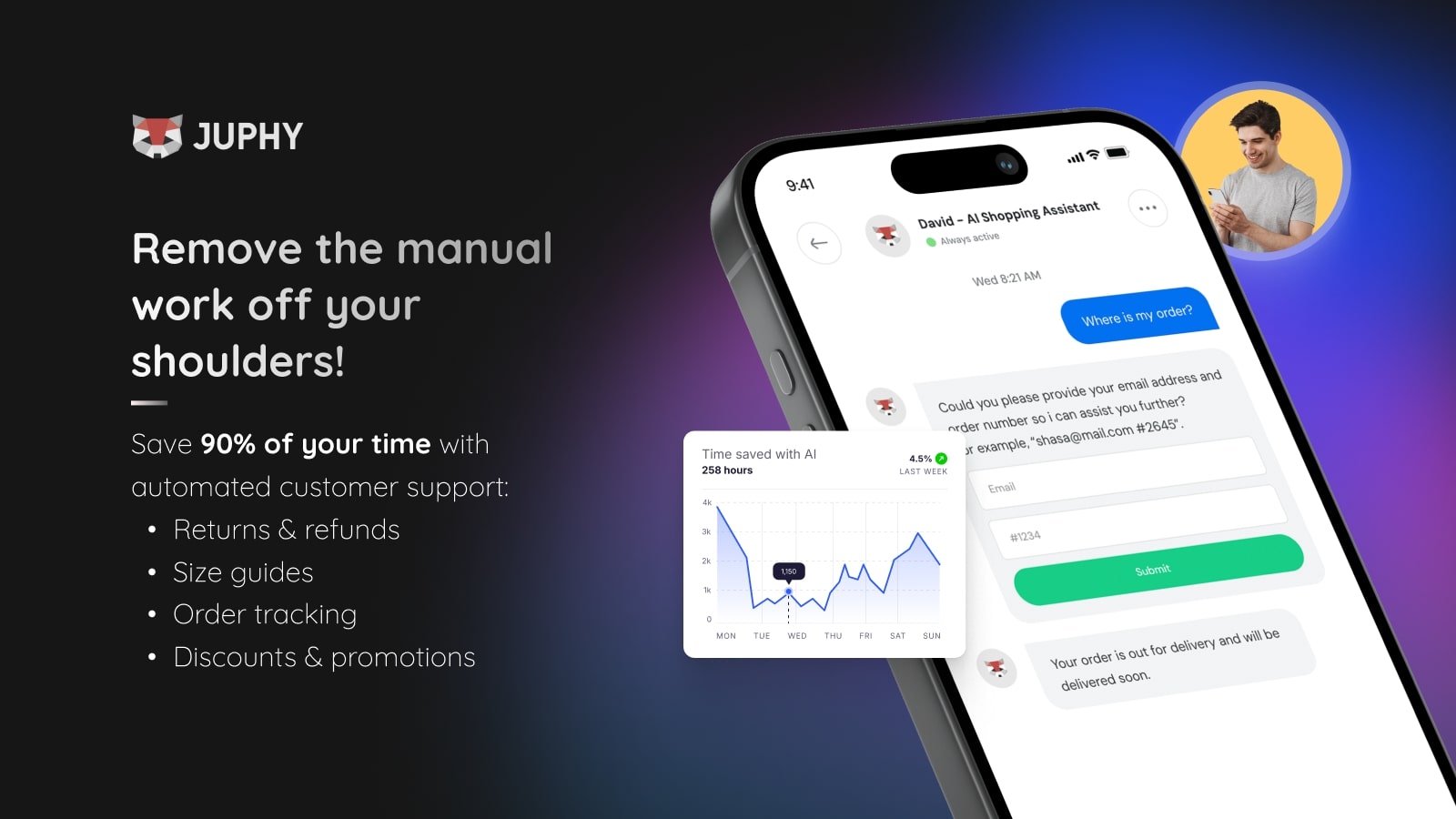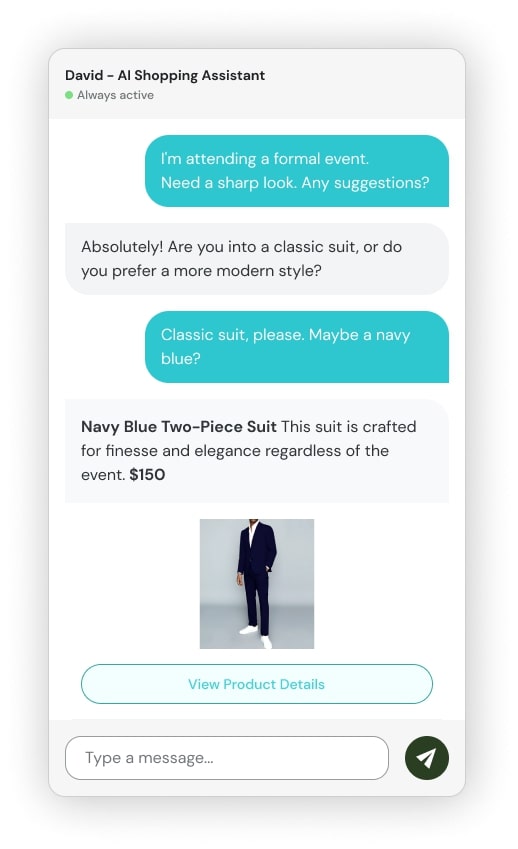The Power of Conversational AI in E-Commerce
Zeynep Avan
E-commerce customers have always been hard to deal with. They ask many questions. They want quick answers. They want personal touch.
I am not criticizing this fact, to be honest. The logic of e-commerce relies highly on the relationship between the business and customers. However, creating an engaging, assisting, and personalizing shopping experience in an online space with high competition can be challenging.
That’s where conversational AI comes in.
It isn’t the future of e-commerce; it’s happening right now.
Let’s learn together how conversational AI is changing the overall online shopping experience and e-commerce.

What Is Conversational AI?
Conversational AI is a solution that tackles the challenges of traditional customer support and chatbots, thereby enhancing the shopping experience.
Imagine this: an online element that can answer you, engage with you, and even help you like any human rep.
You probably know AI chatbots exist. These AI assistants are emerging everywhere – not just on e-commerce sites and online retailers but also on popular social media platforms.

Why? The aim is simple: To streamline customer interactions and make them quicker and more user-friendly. In fact, the impact of these AI-powered chatbots is significant. According to Juniper Research, they are predicted to handle 70% of customer conversations by 2023, demonstrating their pivotal role in reshaping customer interactions in the e-commerce landscape. Think about the last time you had a question while shopping online. How convenient would it have been to get an instant, helpful response? That’s exactly what conversational AI aims to provide – a smoother, more intuitive shopping experience.
There are several different types of AI chatbots you can explore more in our previous article.
Definition of Conversational AI
When we say “Conversational AI”, standing for “Conversational Artificial Intelligence”, we’re talking about a collection of technologies designed to provide a better shopping experience by simulating human-like conversations.
It can understand and respond to both speech and text inputs from users.
In the context of customer service, it includes AI-enhanced tools, like chatbots or voice-activated assistants, that interact directly with customers.
With the rise of messaging as a primary means of communication, platforms such as Facebook Messenger and WhatsApp are experiencing a wave in user engagement.
Conversational AI fits right into this landscape, increasing the user’s experience.
Given the growth of the conversational AI market in the near future, it’s no surprise that businesses are quickly integrating this tech to stay competitive and offer top-notch customer support.
From Basic Chatbots to Advanced AI
We’ve come a long way… Since the first conversation, robots –chatbots, have emerged.

The basic chatbots are the first automation in customer conversations, which can only answer simple questions like “How can I find X?” or “What is the color palette of Y?” to support the shopping experience in e-commerce.
They’re like helpers who can give answers about a few things that are taught to them.
But then, there are smarter robots that have come with advanced AI technology.
Conversational AI is capable of understanding and engaging in more nuanced, human-like conversations. They don’t just follow automation and ready-to-use answers; they learn and adapt, making them sufficient for providing personalized shopping advice or handling complex customer issues.
In other words, they’re not just answering with set replies; they’re able to “think” and “understand” the conversation.
Shortly, while chatbots run on an automation routine, conversational AI creates a different atmosphere to increase the shopping experience to a more personalized and interactive level.
Key Advantages of Integrating Conversational AI
There are several dynamics that shape the overall shopping experience. Conversational AI enhances each of these dynamics to improve the user’s shopping experience.
Enhanced Customer Interactions
Conversational AI can deal with many customer interactions at the same time, multiplying the amount a customer relationship rep can do.

In fact, it can manage nearly 80% of customer support queries, freeing up businesses to focus on more complex issues.
And we are not talking about vague, simple, and ineffective interactions here. Conversational AI technology is able to properly operate each interaction simultaneously and provide the best experience possible.
Not just that. Conversational AI is an advanced model, as we mentioned earlier, which can also make personalized offerings and recommendations based on the customer’s cart and purchase inquiries.
This way, this technology saves time, provides simultaneous answers, automates many rep tasks, and improves customer service overall.
24/7 Customer Support
We mentioned customer interactions above, and time is also connected to that dynamic.

Online shopping doesn’t have an opening or closing time. It is “Open” 24/7. Therefore, the service and experience should be available 24/7, too.
Some companies solve this problem by hiring worldwide reps and teams, but having a conversational AI is much more advantageous.
With conversational AI, getting an answer is a matter of seconds, no matter the time.
Moreover, chatbots or virtual assistants can assist customers waiting to get a question answered before completing their checkout, ensuring sales occur at any time.
Personalized Shopping Experiences
Personalization is everything; you hear that all the time. But, especially in e-commerce, the more personalized the shopping experience, the better the chance of sales.

One of the benefits of conversational AI is its ability to create a personalized shopping experience for customers.
It tailors product recommendations based on the contents of the customer’s cart and their previous purchase inquiries, potentially leading to increased sales.
Real-time Interaction and Support
Last but not least, conversational AI offers real-time customer support. Hence, it helps decrease the time customers wait to get an answer or solve any problem.
It can also help customers make purchasing decisions in real-time, guiding them through product recommendations and even including “Add to cart” calls to action.
Businesses can also integrate conversational AI with various communication channels and tools, ensuring real-time interactions across platforms.
Best Practices of Conversational AI in Today’s E-Commerce
E-commerce businesses must stay ahead to remain relevant.
Conversational AI, particularly in the form of chatbots, has dramatically changed how businesses connect with customers.
While the evolution of chatbots has made customer service more accessible and efficient, building a chatbot that drives results is not a walk in the park. It takes careful thought, innovative design, and regular optimization.
Let’s mention three best practices to keep in mind.
Product Recommendations through AI Analysis
Conversational AI chatbots have proven to be invaluable in the e-commerce sector. Why? Because they have the capability to analyze customer data, including behavior, history, and preferences.
By evaluating customer data behavior and preferences, AI can provide personalized product recommendations.
Creating questionnaires to gather customer preferences can be helpful in providing more precisely targeted recommendations.
It not only increases the shopping experience but also creates meaningful conversations and increases user engagement.
Real-time Query Resolutions
Whether it’s a basic FAQ or a complex issue, AI is faster than human support. If you can train your AI properly based on your branding, language, products, etc., it can assist customers in real time, better than you expect.

Why is it important to act fast? Today, customer demands are increasing, and they are more impatient. Therefore, companies need to ensure their AI chatbots are working properly and fast to solve problems in real time.
Streamlined Checkout Processes
Online shoppers are different. As much as they are close to completing the order, they are also close to abandoning the card at any moment. When a customer is alone shopping at home, it is hard to change their mind, convince them, or impress them.
These are what conversational AI can do for a customer sitting at home, shopping online.
When shoppers abandon their carts due to long and boring checkout processes, AI chatbots, with their ability to gather essential details, guide users through the purchase steps and simplify this process.
Integrating AI-supported chatbots into the checkout process enables businesses to offer real-time support, address shipping or payment queries, and strategically upsell or cross-sell products.
Overcoming E-Commerce Challenges with AI
As we first said in this article, e-commerce customers are not very easy to deal with, and providing the best shopping experience can really be challenging.
As in anything that comes to your mind, from design to sales, AI has become a real hero in overcoming the challenges that occur in e-commerce.
What can be those challenges? High customer traffic that cannot be met with reps, language barrier with some customers, customers with security concerns, and data bias. But AI can be a solution to each, at least lighten the volume of the problem even when it looks really hard.
Handling High Volume Traffic
Unfortunately, human support has some limits. I am not talking about being incapable of doing something but being limited in terms of quantity.
When there is a huge volume of customer traffic, customer issues, or sales, we either need hundreds of customer reps, which costs a huge amount of time, effort, and resources, or we need AI.
Dealing with high volumes in e-commerce is a real case. The high volume of sales is what we desire, but it comes with its challenges.
Conversational AI is, thankfully, unlimited in terms of quantity. It can reply to hundreds of customer messages, send hundreds of notifications, and even make product recommendations at the same time.
Multilingual Support and Global Reach
The e-commerce landscape is huge. Online shopping is all over the world, so customer profiles and locations vary a lot.
This causes differences in cultures, languages, expectations, and needs, which can be seen as both opportunities and challenges.
It is good because it helps e-commerce businesses reach more customers and target global positions.
It is bad because it requires them to provide a customer experience that is multilingual, understandable, easy, and adaptable.
That’s where conversational AI meets an important part of the customer experience by automatically detecting the user’s location and language and creating a website experience and customer support according to their profile and preferences.

This way, a multilingual challenge in e-commerce can be overcome, breaking the language barrier and creating a personalized shopping experience.
Addressing Security Concerns
You are giving your credit card and credential information to an e-commerce website. How can it not raise security concerns?
The answer is: it will. Security is of real importance, and customers’ concerns should be addressed at the highest level.
We can deal with high traffic, language barriers, etc., but once you lose your credibility in the eyes of the customers, it is harder to get it back.
Businesses and customers both can be affected by identity thefts, data thefts, or other fraudulent activities.
AI has changed the way we view security. Its dynamic learning algorithms can track customer behaviors and transactions, detect unusual patterns, and flag potential insecurity problems.
It is also functional in terms of implementing other different security standards, like face recognition or fingerprint scanning, to ensure a higher level of user authentication.
Why AI? It has the ability to learn and adapt, unlike traditional security practices, and can be more proactive against cyber threats.
Combatting Data Bias
In e-commerce, data is everything. Data is the one that creates better shopping experiences by making personalized engagements, product recommendations, targeting ads, understanding what customers need, and more that I cannot list here.
For example, Nordstrom requests email addresses for customer profiling and enriching data for a better customer support experience.

Yet, data is also risky. Wrongly trained analytics and algorithms can sometimes result in incorrect data analytics and inaccurate customer information.
With AI, we can also decrease the chance of inaccurate data analytics by more comprehensive datasets and historical analysis.
AI analysis processes can be trained and refined over time to pinpoint potential problems and ensure accurate and correct data flow.
Juphy’s Edge in the Conversational AI Arena
We discussed the increasing importance of AI in e-commerce and conversational AI as the online environment continues to develop.
We look for ways to improve processes, especially in improving and transforming customer relationships, engagement, and strategy in this environment. But it is not too far away; it is already here.

Juphy’s AI Agent, a ChatGPT 4-powered chatbot, is designed to help you with conversational AI to better the shopping experience you provide by integrating seamlessly into your Shopify store. Juphy’s ‘Built for Shopify’ badged AI chatbot steps in as a virtual sales associate, always present to guide, recommend, and support. Plus, it is directly accessible from the Shopify dashboard.
It works so simply:
- It scans your entire website,
- Gather product information and policies,
- And perfectly mimic your brand tone of voice during your leads’ and customers’ experience with your business.


Juphy’s Chatbot’s Powerful Features
When we think of AI and its capabilities, we should also know that there are several MUST-HAVE features to make it work and give results as expected.
- Product Recommendations: Juphy AI gives personalized product recommendations depending on customer needs and questions.
- Edit and Train: Knowing your business to its veins, you can see the room for improvement in training your AI. Juphy lets you refine your AI algorithm and system to work better.
- Automatic Updates: As your store evolves, so does the chatbot. Whether you’re adding new products or updating information, the chatbot auto-updates, ensuring it’s always in sync with your offerings.
- 24/7 Customer Service: Juphy AI answers FAQs, returns, and exchanges inquiries at all times, even when you are sleeping.
- Instagram and Facebook Integration: Juphy’s chatbot also serves your social media visitors on Facebook and Instagram, maintaining your brand image and boosting your lead generation.
Conclusion
The e-commerce experience, from both the seller and customer sides, has been transformed to another level with conversational AI.
With its advantages, best practices, and challenges, e-commerce businesses can make their brand stand out in the market with easy, data-driven, and smooth customer engagement.
Shopping experience: upgraded.
Customers can get personalized experiences while businesses can decrease the cost of their resources, provide excellent customer services, and become data-driven in every customer interaction and business decision. Experience the difference by trying Juphy AI for completely free today!
Key Takeaways
- Conversational AI increases the quality of the shopping experience by providing fast, user-friendly, and effective customer interactions.
- Conversational AI is getting more and more popular with the growth in online shopping experience and social selling.
- Conversational AI is changing the dynamics of e-commerce, with more than 70% of e-commerce customers reporting positive experiences with chatbots.
- E-commerce businesses should use conversational AI to provide better shopping experiences, with 24/7, real-time, personalized, and multilingual customer support.
- E-commerce businesses can overcome the important challenges they face in operating different parts of their business with AI, from security concerns to high-volume customer traffic.
